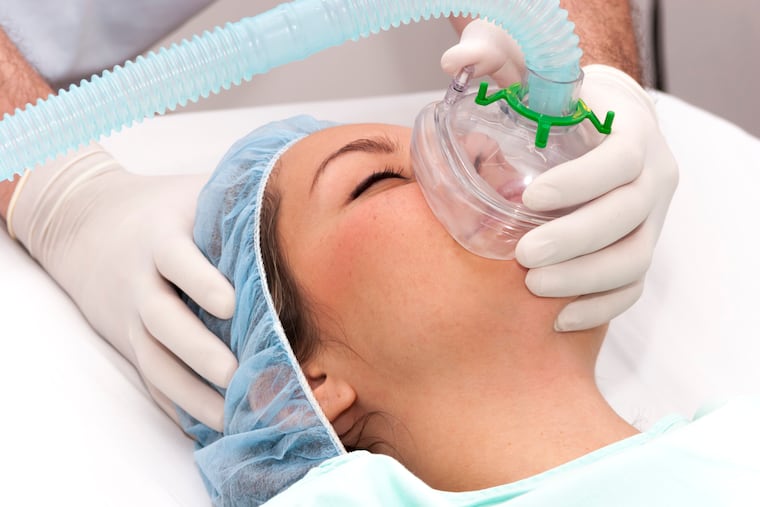Should I worry about my child being allergic to anesthesia?
Many people have been told that they are allergic to certain drugs when in fact they actually had an untoward reaction to that drug without the true allergy.

One of the most frequent questions parents ask me is "Can my child have an allergy to the anesthesia?" It's an important question that every parent should ask. But the answer is not simple.
The medical definition of an allergy is an abnormal response of the body to an otherwise harmless substance. When your body's immune system detects a foreign substance that it deems harmful, it manufactures antibodies to attack and neutralize it. This can manifest as hives, itching, and watery eyes or anaphylaxis, a severe reaction that can include critical drops in blood pressure, difficulty breathing, and possibly even swelling of the throat.
Unfortunately, many people have been told that they are allergic to certain drugs when they had a reaction that was not a true allergy. For example, local anesthetics used by dentists are commonly mixed with adrenaline, which constricts blood vessels and keeps bleeding to a minimum. The adrenaline can seep into your bloodstream and cause your heart to speed up or even skip a few beats. This is not an allergy to adrenaline, but rather an expected and fairly frequent side effect. Actually, adrenaline is the most important antidote to treat anaphylaxis.
Another example: when a child takes amoxicillin for an ear infection and has an upset stomach or superficial pink skin rash. Amoxicillin, a form of penicillin, is known to cause these reactions, therefore they are not allergies but expected side effects that are annoying, but temporary and do not exclude patients from taking penicillin-like drugs in the future.
In the operating room we use two kinds of anesthetics: inhaled gases and intravenously injected solutions.
The gases are modern-day versions of ether, first discovered in the mid-1800s. Although it is theoretically possible to have an allergy to a gas anesthetic, only a small handful have ever been reported among the many millions of people anesthetized yearly in the United States.
Sometimes, a gas anesthetic can cause one's heart rate or blood pressure to go up or down, but again, these are expected effects, and your anesthesiologist is continuously monitoring for them.
One important reaction from exposure to a gas anesthetic is a condition known as malignant hyperthermia, a combination of muscle breakdown and high body temperature. Though rare (100 to 200 cases reported in the U.S. each year), anesthesiologists are always on the lookout for this reaction. A drug called dantrolene, available everywhere gas anesthetics are used in the U.S., is the antidote.
Of intravenous drugs in the OR, the most likely — though still rare — to cause an allergy is muscle relaxant, but I've seen only one case in my 30-year career.
All the other anesthetic drugs typically used have not been associated with allergies. For example, propofol, an anesthetic that reduces consciousness, may cause drops in blood pressure or respiration, but these are expected side effects. Opioid narcotics, such as fentanyl or morphine, have known side effects such as decreased respiration, nausea, or itching, but true allergies to opioids are also almost unheard of.
So, can you be allergic to anesthesia? It's possible, yes, but fortunately so rare that nearly all patients who receive anesthesia will never experience it.
Ronald S. Litman, D.O., M.L., is the medical director of the Institute for Safe Medication Practices, based in Horsham, and an anesthesiologist at the Children's Hospital of Philadelphia. The views and opinions expressed in this article belong solely to the author, and not necessarily to the author's employers or their affiliates. Follow him on Twitter at @DrRonLitman.